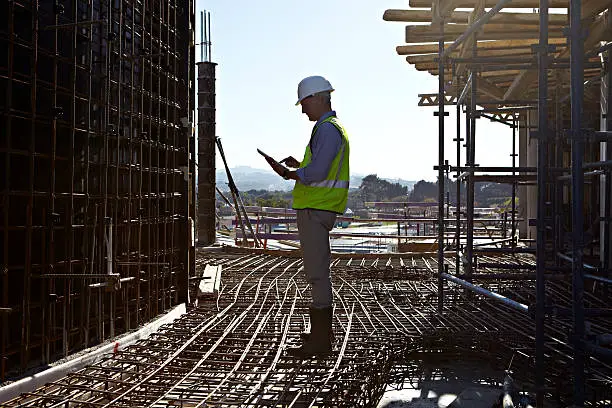In the world of construction, successful project execution requires meticulous planning, coordination, and management. Enter the Construction Project Manager – a key figure responsible for overseeing and coordinating the various aspects of a construction project from inception to completion. This article will delve into the roles and responsibilities of a Construction Project Manager, the qualifications required for the role, and what one can expect in terms of salary and job prospects.
Roles and Responsibilities of a Construction Project Manager
A Construction Project Manager wears many hats throughout the project’s lifecycle. They are involved in the planning, organising, and implementing construction projects, ensuring that everything runs smoothly and efficiently. Here are ten essential roles and responsibilities of a project manager in construction:
a. Project Planning
The Construction Project Manager collaborates with stakeholders to establish project objectives, scope, and timelines. They create a comprehensive project plan detailing the necessary resources, budget, and schedule.
b. Budget Management
One of a Construction Project Manager’s critical responsibilities is managing the project’s budget. They monitor expenses, control costs, and make informed decisions to keep the project financially viable.
c. Resource Allocation
Allocating resources effectively, including manpower, materials, and equipment, is vital for project success. The Construction Project Manager ensures the right resources are available at the right time.
d. Risk Management
Identifying potential risks and implementing mitigation strategies is crucial in the construction industry. The Project Manager assesses risks and develops contingency plans to address unforeseen challenges.
e. Quality Control
Maintaining high-quality standards is essential to deliver a successful project. The Construction Project Manager ensures that all work meets quality requirements and adheres to safety regulations.
f. Communication
Effective communication is the cornerstone of a well-coordinated construction project. Project Managers liaise with stakeholders, team members, and contractors to ensure everyone is on the same page.
g. Schedule Adherence
Meeting project deadlines is a priority. Project Managers monitor progress and adjust the schedule when necessary to avoid delays.
h. Contract Management
Handling contracts with vendors, suppliers, and subcontractors is part of the Project Manager’s responsibilities. They negotiate terms and ensure all parties fulfil their obligations.
i. Change Management
Construction projects often encounter changes due to unforeseen circumstances or client requests. The Construction Project Manager manages change requests and assesses their impact on the project.
j. Project Closeout
As the project nears completion, the Project Manager oversees the closeout process, which includes final inspections, documentation, and client handover.
READ ALSO: What Does a Civil Engineer Do?
Qualifications of a Construction Project Manager
Becoming a competent project manager requires education, experience, and essential skills. While specific qualifications may vary, typical requirements include:
a. Education
A bachelor’s degree in construction management, civil engineering, architecture, or a related field is typically preferred. Some Project Managers may pursue a master’s degree for advanced roles.
b. Experience
Construction Project Managers often gain experience working in entry-level construction positions or as project coordinators. Hands-on experience in the construction industry is invaluable for understanding the complexities of the job.
c. Certifications
Certification like the Project Management Professional (PMP) designation can enhance a Project Manager’s credibility and marketability.
d. Technical Knowledge
A deep understanding of construction processes, codes, and regulations is necessary to make informed decisions and ensure compliance.
e. Leadership and Communication Skills
Strong leadership, problem-solving, and communication skills are essential for effectively managing diverse teams and stakeholders.
Jobs and Salary
These Managers are in demand across various sectors, including residential, commercial, and infrastructure development. Job opportunities can be found in construction companies, real estate firms, engineering consultancies, and government agencies.
As for salary, it can vary depending on factors such as location, level of experience, and project size. On average, a Construction Project Manager’s salary ranges from [mention specific salary range according to current data], making it an attractive career option for those passionate about construction and project management.
Commercial Construction Project Manager Job Description
A Commercial Construction Project Manager oversees commercial construction projects, such as office buildings, retail centres, hotels, etc. Their roles and responsibilities encompass all the critical aspects mentioned earlier, emphasising managing large-scale commercial projects and handling their unique challenges.
The Managers play a pivotal role in ensuring the successful execution of construction projects from start to finish. Their ability to plan, coordinate, and manage various aspects of a project is crucial for meeting objectives, delivering quality results, and satisfying stakeholders. With the right qualifications and experience, a career as a Construction Project Manager offers both rewarding challenges and promising opportunities in the dynamic world of construction.

Leave a Reply